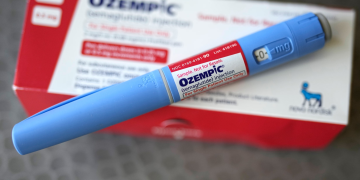Telehealth addiction treatment, or telemedicine addiction treatment, is a form of addiction treatment that utilizes technology to provide therapy, counseling, and other forms of addiction support remotely. It involves video conferencing, phone calls, and other digital platforms to connect patients with addiction professionals who can provide treatment and support.
In recent years, telehealth addiction treatment has become increasingly popular due to its accessibility, convenience, and cost-effectiveness. According to the Substance Abuse and Mental Health Services Administration (SAMHSA), telehealth can effectively deliver addiction treatment services to individuals who may not have access to traditional treatment programs, such as those living in rural areas or those with mobility or transportation issues.
There are many reasons telehealth addiction treatment can benefit individuals struggling with addiction. Here are five key reasons:
Increased Accessibility
One of the most significant advantages of telehealth addiction treatment is that it can be accessed virtually anywhere with an internet connection. This means that individuals who live in rural or remote areas, where addiction treatment services may not be readily available, can still receive treatment and support from addiction professionals.
Additionally, telehealth addiction treatment can be an excellent option for individuals with mobility or transportation issues. For example, individuals who do not have access to reliable transportation or who cannot leave their homes due to a physical disability can still receive addiction treatment services through telehealth.
By increasing accessibility, telehealth addiction treatment can help bridge the gap in addiction treatment services and ensure that more individuals have the support they need to overcome addiction.
Improved Convenience and Flexibility
Another benefit of telehealth addiction treatment is that it offers greater convenience and flexibility than traditional in-person treatment. With telehealth, individuals can receive addiction treatment services from the comfort of their own homes or another location.
This can be particularly beneficial for individuals with busy schedules or who may have difficulty attending in-person treatment sessions due to work or family obligations. With telehealth, individuals can schedule treatment sessions at a convenient time and can often avoid the need to take time off work or arrange for childcare.
Additionally, telehealth addiction treatment can offer greater flexibility regarding the available services. For example, some telehealth addiction treatment programs may offer 24/7 access to support and counseling services, which can be particularly helpful for individuals who may be struggling with cravings or other addiction-related issues outside of traditional business hours.
Reduced Stigma
Telehealth addiction treatment can help reduce the stigma that can be associated with seeking addiction treatment. Many individuals who struggle with addiction may hesitate to seek treatment due to concerns about being judged or stigmatized by others.
With telehealth, individuals can receive addiction treatment services from the privacy of their own homes or another location. This can help reduce feelings of shame or embarrassment associated with seeking addiction treatment and make it easier for individuals to access the support they need to overcome addiction.
Increased Engagement and Retention
Research has shown that telehealth addiction treatment can increase engagement and retention in treatment programs. According to a study published in the Journal of Substance Abuse Treatment, individuals who received addiction treatment services through telehealth were likelier to complete their treatment program than those who received in-person treatment.
The study also found that individuals who received telehealth addiction treatment reported high satisfaction with the program and felt that the treatment was effective in helping them manage their addiction.
By increasing engagement and retention in addiction treatment programs, telehealth can help individuals achieve long-term recovery and reduce their risk of relapse.
Lower Cost
Telehealth addiction treatment can be a cost-effective alternative to traditional in-person addiction treatment services. By eliminating the need for travel and reducing overhead costs associated with operating a physical facility, telehealth addiction treatment providers can often offer their services at a lower cost than traditional treatment providers.
This can make addiction treatment more accessible and affordable for individuals who may not have the financial resources to pay for traditional in-person treatment programs. Additionally, many insurance companies now cover telehealth addiction treatment services, making it easier for individuals to access the support they need to overcome addiction without incurring significant out-of-pocket expenses.
Telehealth addiction treatment is a valuable option for individuals who may not have access to traditional in-person addiction treatment services. By utilizing technology to provide therapy, counseling, and other forms of addiction support remotely, telehealth addiction treatment offers increased accessibility, improved convenience and flexibility, reduced stigma, and increased engagement and retention in treatment programs.
As more and more addiction professionals and patients embrace telehealth addiction treatment, we will likely see continued growth and development in this field. With its many benefits, telehealth addiction treatment has the potential to help more individuals overcome addiction and achieve long-term recovery.
























